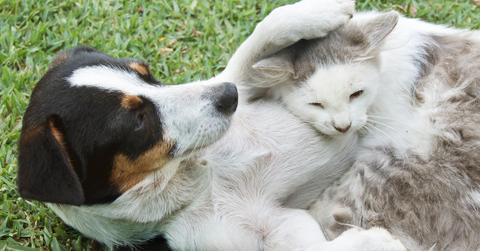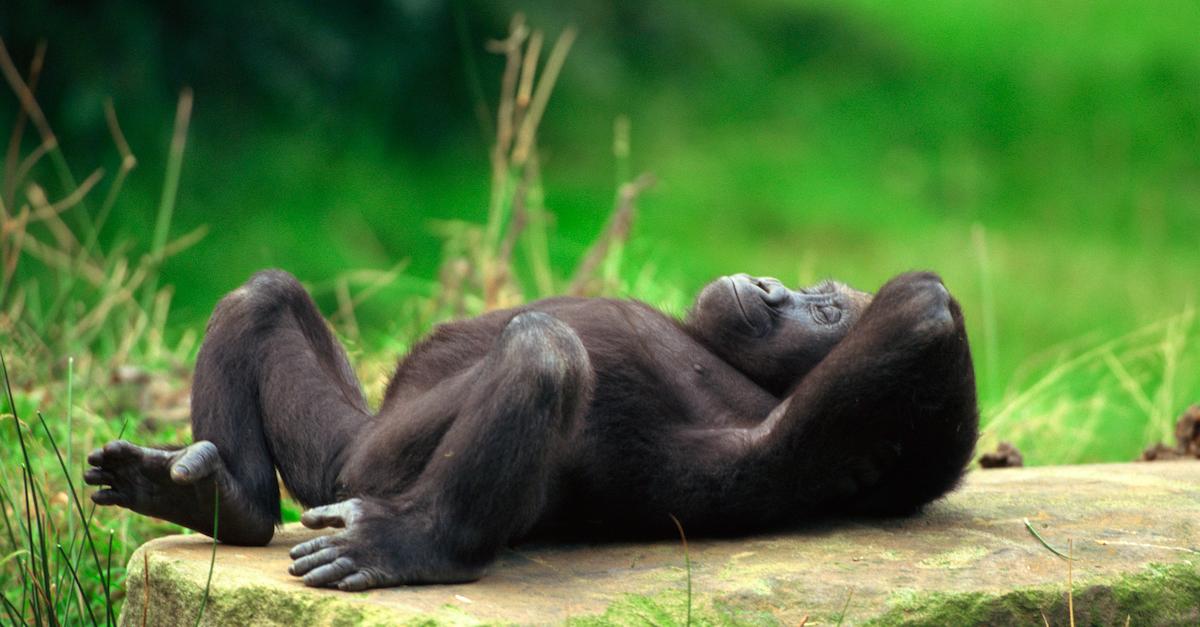New Research Finds Dogs and Cats Commonly Catch COVID From Infected Humans
Updated July 1 2021, 10:37 a.m. ET

Since the first case of COVID-19 was identified in December 2019, doctors and society alike have continued learning about the potentially deadly respiratory virus. We've learned that COVID-19 is a "zoonotic disease," meaning it spreads between animals and humans, and that it's believed to be the result of our unhealthy relationship with animals. Although humans can (clearly) contract the virus from animals, many wonder if animals can contract COVID-19 from people — and if so — which ones can.

Can animals catch COVID-19?
As previously mentioned, SARS-CoV (aka COVID-19 or "the novel coronavirus") is confirmed to be a zoonotic disease, which means it was transferred from animals to humans, and it's now being transferred from human to human. But can animals catch COVID-19 from humans? According to the USDA, the National Veterinary Services Laboratories (NVSL) has confirmed that more than one animal has come down with the coronavirus after being exposed to a human with COVID-19.
A study published in the Proceedings of the National Academy of Sciences looks at something in both humans and other types of mammals, which is called an ACE2 receptor protein. According to MedicineNet, this is where the coronavirus tends to reproduce and create an infection. In the study, the authors noted that the more similar an animal's ACE2 receptor proteins are to humans', the more likely they are to get infected.
TLDR? Animals with human-like ACE2 receptor proteins are more likely to catch the virus.
“We identified a large number of mammals that can potentially be infected by SARS-CoV-2 via their ACE2 proteins,” the study authors wrote, as per MedicineNet. “This can assist the identification of intermediate hosts for SARS-CoV-2 and hence reduce the opportunity for a future outbreak of COVID-19.”

New study shows dogs and cats can easily catch COVID-19 from their owners.
In June 2021, researchers from Utrecht University conducted a study that collected swab samples from 310 cats and dogs in 196 households that housed humans with COVID-19, according to BBC. They found some cats and dogs had a current infection, and blood samples found antibodies, meaning they were exposed in the past. Most were asymptomatic or had mild COVID symptoms, though experts worry they could transmit the disease back to their owners.
Two gorillas were infected by COVID-19, presumably by an infected staffer.
Unfortunately, gorillas are one of the animals that have similar ACE2 receptor proteins to humans, meaning they are able to contract the disease from infected people. On Monday, Jan. 11, it was announced that two gorillas in the San Diego Zoo's Safari Park are currently being treated for mild cases of the potentially fatal virus, according to CBS News. They were believed to be infected by an asymptomatic zoo staffer.
Apparently, the two primates in question started exhibiting common mild COVID symptoms such as coughing, which is why the zoo decided to test the gorillas' fecal matter. Although the tests came back positive on Jan. 8, the gorillas are apparently doing quite well thus far.
"They are being closely observed and there is nothing to suggest today that they won't make a full recovery," according to a statement from the zoo, as per CBS News.

What other animals can contract COVID-19?
Similarly, in April 2020, a tiger at the Bronx Zoo tested positive for the coronavirus, though his case was quite mild. An entire Denmark mink farm also contracted COVID-19, which sadly resulted in a mandated mass culling. As per MedicineNet, chimps, giant anteaters, bottlenose dolphins, horses, and alligators may also be vulnerable to COVID-19, though research is still ongoing regarding which animals can contract the infection.
This answer to all of this? Get vaccinated, and face the fact that our unhealthy relationship with animals and livestock is the root of all this — therefore, some major changes should take place so nothing like this happens again.